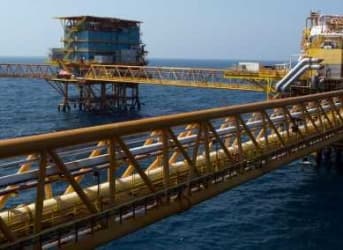Mexico improved upon its disappointing July auction in its latest round; an improvement that could lead to deeper investment in the country’s oil sector.
In the second edition of Mexico’s “Round One” auction, the government successfully awarded three out of the five offshore production-sharing contracts on offer, a better outcome than the two blocks out of 14 that were awarded in July.
Mexico is seeking to increase its oil production, after more than a decade of falling output. The liberalization of its energy sector, ending seven decades of state control, was intended to attract international investment. Mexico is undertaking several rounds of bidding, auctioning off various blocks offshore and onshore. The first blocks on offer were for shallow water territory in the southern Gulf of Mexico near the states of Veracruz and Tabasco. Related: Can Economies Of Scale Rescue TSLA?
The timing is horrendous – oil prices are less than half of what they were when the government started planning for these auctions. Oil companies are tightening their belts, and with smaller exploration budgets, places like offshore Mexico are not at the top of the list in terms of priorities for many companies. Offshore projects require billions of dollars and several years of work to develop. The long term horizon is almost certainly deterring interest in new projects.
However, the one thing working in Mexico’s favor (and in the favor of the auction winners) is the fact that the government is offering proven reserves, areas that have already been discovered. So it is not as if the government and the companies involved are unsure if oil is actually in place in these blocks. “There is no exploratory risk” Juan Carlos Zepeda, president of the National Hydrocarbons Commission, said ahead of the auction, according to the Wall Street Journal. “The projects themselves are more attractive, less risky, so on the basis of that, I believe we should get a good result.”
In the latest round, Mexico tweaked its terms in order to attract more investment. The government is billing the September 30 results as a success. Italian oil giant Eni won a contract for several oil fields, including the Amoca, Mizton, and Tecoalli fields. Eni’s fields could hold 628 million barrels of oil. Related: Alaska Facing Tough Choices Without Arctic Oil
Two other consortiums also won leases. One group of companies, consisting of Fieldwood Energy and Mexico’s Petrobal, won the rights to the Ichalkil and Pokoch fields. Another consortium made up of Argentina’s Pan American Energy and E&P Hidrocarburos y Servicios, won the Hokchi field.
(Click to enlarge)
The Mexican government projects that the winners will invest over $600 million in the three blocks awarded over the next three years. And over the next 25 years, the government expects $3.1 billion in investment. Related: Obama’s Fracking Regulations Take A Serious Hit
The inclusion of Eni, in particular, was a bit of a coup for the government, which has been hoping to attract some of the oil majors to Mexican waters. Companies like Chevron and Royal Dutch Shell were qualified to bid, but declined to do so. The Italian company offered more than twice the minimum price set by the government. In a sign of just how much interest has dropped in new offshore drilling, the U.S. just held an offshore auction for Gulf of Mexico leases that were similar in nature to what Mexico was auctioning off, and none of the oil majors decided to even bid. Mexico is pleased to have attracted Eni to its waters.
Moreover, the Mexican government hopes that the successful round could still allow it to achieve its ambitious production targets. The government of President Enrique Peña Nieto has targeted 3 million barrels per day of production by 2018, up from the current 2.3 million barrels per day. The tepid interest thus far in the shallow water fields threatens to derail these objectives, but the three bids awarded on September 30 could go a long way towards the country’s goal of reversing its slide in output.
There are two remaining auctions for the “Round One” offers, a December auction for onshore fields, and a deep water auction in 2016. The deep water auction will be closely watched, as the blocks expected to be offered are close to much larger oil fields located just across the maritime border in American waters.
By Nick Cunningham of Oilprice.com
More Top Reads From Oilprice.com:
- Trouble Ahead For The World’s Next Shale Boom?
- Fund Managers Have Their Own ‘Black Monday’ Thanks To The Saudis
- Is The U.S. About To Break One Of Its Own Nuclear Treaties?



















